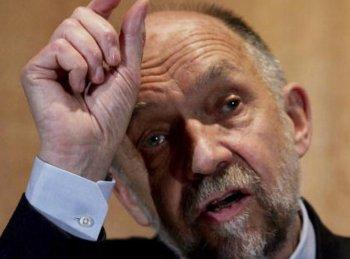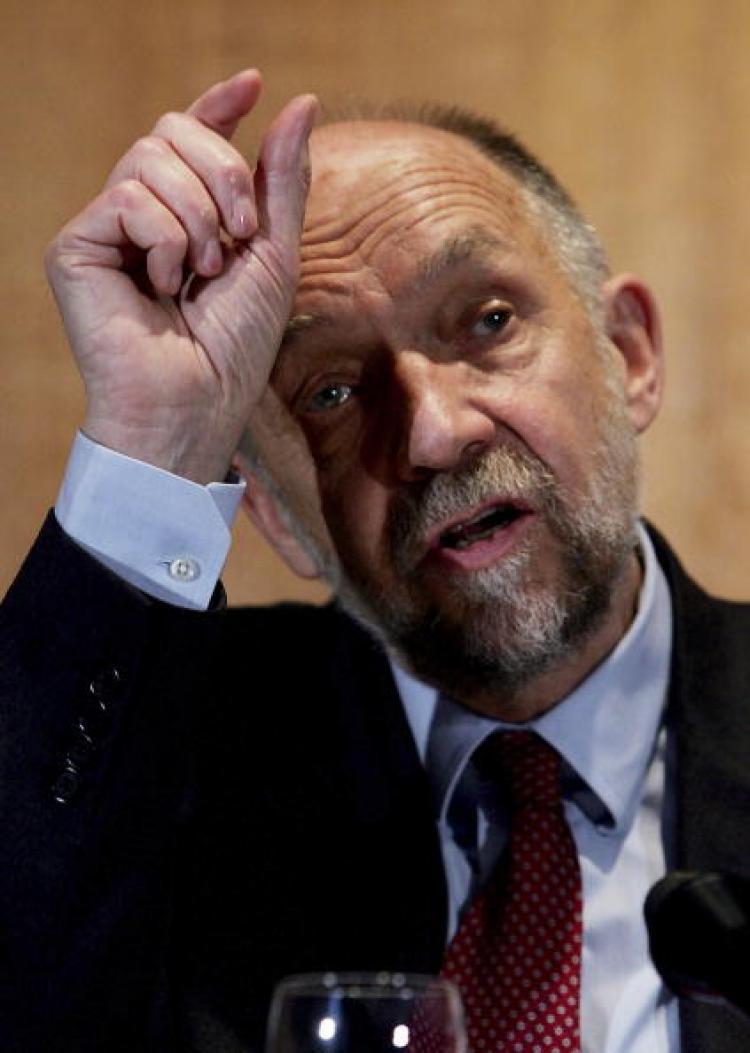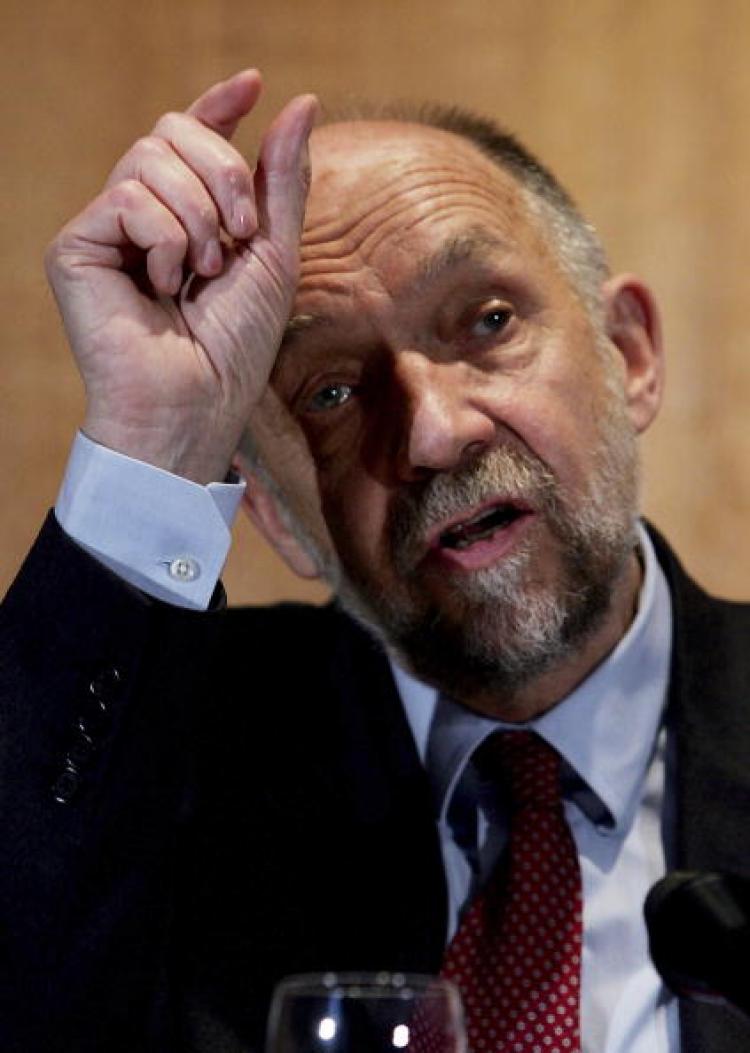Economic Forecast Downgraded Ahead of Budget
Economy not recovering as fast as expected, says Sir Alan Budd, chair of the new Office for Budget Responsibility (OBR).

Sir Alan Budd, now chairman of the Office for Budget Responsibility (OBR), delivers his report into former Home Secretary David Blunkett's fast-tracking of a visa application, December 21, 2004. Ian Waldie/Getty Images
|Updated:





